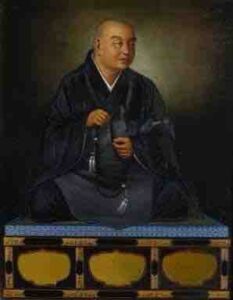Shinjin is Non-dualistic and Subjective
Is Shinjin in Shin Buddhism Non-dualistic or Dualistic?
「Shinjin is Non-dualistic and Subjective 」
ノンデュアリティは(非二元)の解説です。
通常は、禅との類似性を指摘されるノンデュアリティですが、私は、浄土教とも似ていると思っています。
自己の根底に「阿弥陀仏(法蔵菩薩)=清浄なる信心」を見出すという理解です。
二元論とは神と世界、精神と物質、本質と現象など対立する二つの根本原理を立ててものごとを理解しようとする方法です。
特に西洋思想はこの二元論が主流です。自分と、信仰の対象である神との関係です。
しかし阿弥陀如来はキリスト教の神とは、違うはずです。また、信心とfaithもまた違います。
二元論の対立の世界を超えて、一如の世界が説かれてきた仏教であるが、浄土真宗のお話しを聞くと、阿弥陀を絶対的な外部の救い主に聞こえる時があり、違和感を感じます。
「Shinjin is Non-dualistic and Subjective 」
That sounds natural whereas the words 「I rely on Amida to save me 」do sound more like a dualistic and objectifying approach. Similar to the relationship between oneself and god in Christianity?
Shinjin taken as the experience of awakening in which I actually realize that there is no Amida Buddha apart from me. I realize that I am constantly living the life of Amida Buddha, together with Amida Buddha.
Shinjin signifies a state in which our own hearts and minds become pure. Shinjin is an experience in which one comes able to hear the calling voice of the Buddha.
However, past or traditional interpretations of Shin Buddhism interpreted Shinjin to be a dualistic and objectifying kind of belief, Amida was understood dualistically and objectively to be a Buddha that exists far away from this world in the distant Pure Land.
And I still do get that kind of image when listening to Dharma talk nowadays.


